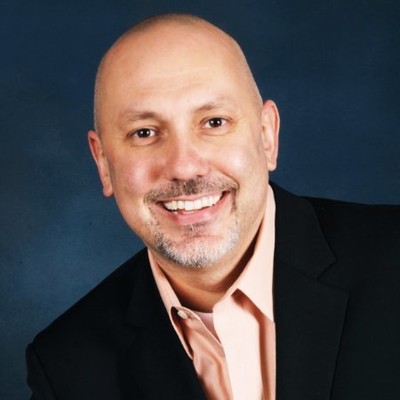What happens when SEO and PPC go head to head? Franchise expert Mark Siebert explains which franchise development marketing strategy gets the knockout in this edition of Franchise Times.
When it comes to franchise lead generation, two heavyweights dominate the ring. In one corner looms search engine optimization (SEO)—an opponent who fatigues the competition with stamina and endurance. And in the other, we have pay-per-click advertising (PPC)—the knock-out artist known to deliver power punches in the early rounds.
So which of these strategies is best for your lead generation? Let’s consider.
It’s PPC in the early rounds
When it comes to the opening rounds, PPC is the undisputed champ. PPC boasts a simple setup process that is easy to execute. In fact, a franchisor can build and launch a campaign with little more than a credit card and a Google AdWords account. And an artful approach to management and bidding can propel a franchisor to the front page of Google in a matter of hours, attracting quality franchise leads before they have even worked up a sweat.
But too often, franchisors set their campaigns up for a longer, more arduous fight. They will frantically set up their budget, keywords, ad copy and landing page in a single coffee-fueled effort, with no regard for long-term maintenance. Or they will put all their eggs in one basket by setting up a single campaign and one “catch-all” ad group containing dozens of unrelated keywords.
Whether you or a digital marketing agency manages your ads, you will want to commit to consistent clean-up and monitoring. Make sure you regularly adjust your bids, analyze ad positions, optimize landing page copy and add negative keywords.
This maintenance becomes much easier if your campaigns are strategically organized. Check that your internal team or franchise marketing firm is separating everything by single keyword ad groups, or SKAGs, so that all ads are directly related to the specific keywords you’re targeting. All in all, a watchful eye on your PPC campaign can help you secure an early-round victory.
But the ability to optimize your PPC campaign is also one of its biggest downfalls from an ROI perspective. In an effort to stay relevant, most franchisors try to maintain placements for their prime keywords at the top of page one. And unfortunately, while you are optimizing your ads and bids on a regular (hopefully) basis, so are your competitors.
So while you may be generating leads at a reasonable cost when you begin your PPC efforts, you can only keep those costs reasonable in the long term by improving ad efficiency and landing page capture rates, because your bid prices are sure to increase over time.
SEO in the championship rounds
While PPC may deliver an early victory, SEO is a much more patient fighter. But to understand this, we need to first understand how SEO provides its returns.
The goal of SEO is to get your page to the top of organic searches, where you do not have to pay Google every time someone clicks on your ad. The top organic listings on Google are also thought to have much more credibility than the top PPC listings. People will often skip PPC ads entirely, as they may have a higher level of trust for a company that Google “endorses.”
But the problem is that getting to the top of Google takes time and money.
SEO is not free. It is driven by providing fresh content on your website; by continually adding pages or optimizing around certain long-tailed keywords; and by developing backlinks on social media and in the digital press. And you will need to pay someone, either internal or external, to get that done.
More importantly, it takes time. Getting results means getting to the top of page one (some research would indicate that over 65 percent of organic clicks go to the first five listings on page one of Google). If you were to start your SEO campaign today, you might not see any increase in leads next month—as Google may not have crawled your additional content, backlinks will not have been secured, and public relations efforts to drive stories will be just getting underway. A month or two out, you may start seeing small increases in organic leads. But it could take six months or even longer to see a substantial increase in lead flow.
And, of course, this measurement is complicated by the fact that attributing leads to SEO and PR efforts is more a function of estimation than exactitude.
Compared to the swift, formulaic rhythm of a PPC campaign, SEO is a methodical long-term play. But don’t let the slow wind-up fool you. This strategy stands to deliver powerful results when properly executed. And since you will probably pay your SEO team and/or PR firm the same fee each month, your ROI on SEO and PPC will increase over time as backlinks, blogs, content and optimized pages begin to compound your results.
Don’t be a rope-a-dope
Thus, for many franchisors, both strategies make a great deal of sense. That said, the mix of resources devoted to each probably should change over time. For franchisors that are lead-starved, starting with PPC will provide the most predictable short-term gains. But the cost of those leads will likely increase over time, making them a better short-term solution than a long-term play.
SEO leads take time, but decrease in costs over time, making them much more cost-effective in the long run. So the best strategies may well start with a PPC heavy approach early only to transition to SEO over time. But whatever you do, remember that both strategies require an ongoing effort. Resting on the ropes and waiting for your opponent to tire will not work in this ring.
Ultimately, when the final bell dings and it is time to go to the cards, effective paid ads, paired with a solid SEO strategy, can work together to position your franchise brand prominently and frequently in search results.
If you’re looking to perfect your brand’s one-two punch, knowing the strengths and weaknesses of both strategies can help you secure the champions you are looking for in your system.
Mark Siebert is CEO of franchise consulting firm iFranchise Group. Reach him at 708.957.2300 or info@ifranchisegroup.com. His new book is “Franchise Your Business: The Guide to Employing the Greatest Growth Strategy Ever.”


